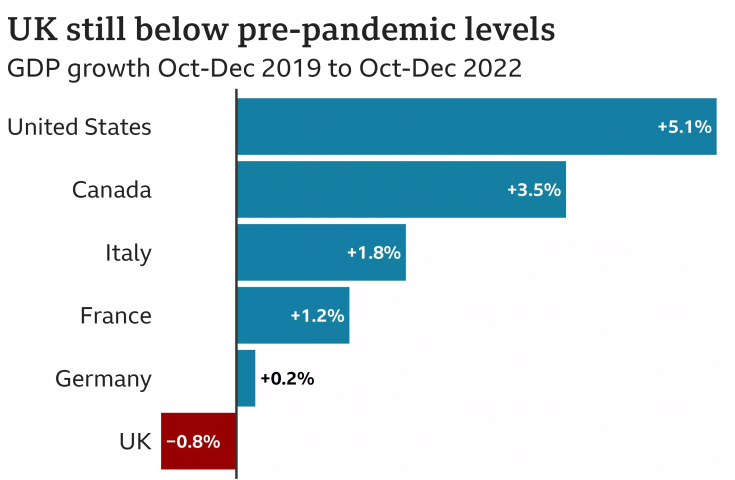No UK recession in 2023
The UK is expected to avoid a technical recession in 2023, according to the Office for Budget Responsibility. But the economy is still expected to shrink by 0.2%.
The most common definition of recession is that of a ‘technical recession’ in which there have been two consecutive quarters of negative GDP – (Gross Domestic Product) – growth.
What is a recession?
Usually a country’s economy is expected to grow, incomes tend to rise as the value of goods and services the country produces, its Gross Domestic Product (GDP) continues to increase.
But sometimes the level of GDP falls, and this suggests that the economy not performing well and may likely move in to recession.
A recession is usually defined as when GDP falls for two quarters or two three month periods in a row. 2020 was the last time the UK’s economy went into recession during the height the height of the coronavirus pandemic.

So, despite inflationary pressure, supply issues, a war in Europe and a mini banking crisis – the UK managed to avoid recession. However, UK growth is expected to be stunted during 203 and 2034 with economies in Europe outperfoming the UK.
Even Russia is projected to outperform the UK. And China will likely outperform all economies, including the U.S., with a projected GDP of some 5%.
The OBR UK GDP growth projections
- 1.8% in 2024
- 2.5% in 2025
- 2.1% in 2026
Despite narrowly avoiding a recession, the UK is the only country in the G7 with a smaller economy than it was before the Covid19 pandemic hit.

The UK is expected to be the only major economy to shrink in 2023
The recession in 2020 lasted six months, however the 20% reduction in the UK economy between April and June 2020 was the largest ever on record.
The previous recession of 2008 was due to the global financial ‘sub-prime’ lending crisis as it migrated to banks causing Lehman Brothers in the U.S. to fail. This recession lasted for five quarters or 15 months.
Why is the UK the laggard? Is it purely the effect of BREXIT?